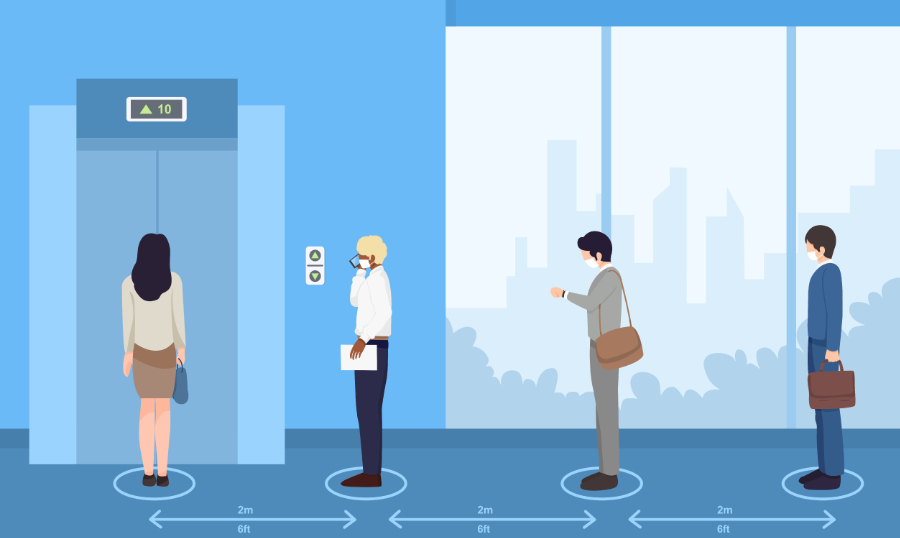In this article, you'll learn:
- The impact of elevator anxiety on commercial real estate
- How COVID has intensified fears and affected high-rise demand
- Strategies for managing elevator anxiety in the workplace
- Ways to mitigate COVID risks in elevators for safer use
Elevators are kind of scary, aren't they? You're locked in a little box, going up and down a long, dark shaft, with nothing but a few cables to hold you up. If you're alone, you've got no one to help you. And if you're not alone, you're stuck. In a small box. With a stranger. And all of this was true -- even before COVID hit.
Elevator anxiety is a real thing for many people whether it stems from agoraphobia, claustrophobia, acrophobia or a combination of the three fears. With COVID, though, there's a new level of fear, because many people perceive elevators as carrying a high degree of epidemiological risk. For perspective, 71 percent of people who don't live in an elevator building don't want to ride one to work.
Elevators and Commercial Real Estate
Commercial real estate can be impacted by elevators in two ways. The first is what we have already discussed -- that many people are simply unwilling to ride elevators in their day to day lives. While this trend can be mitigated, as we will discuss below, elevator anxiety is already affecting near-term demand for high-rise buildings. At the same time, it also makes low-rise buildings that are either single-story or that can be entered with stairs or escalators more desirable.

The need to socially distance for COVID prevention creates a second set of issues beyond elevator anxiety. Without the ability to tightly pack people into elevators to get to work in the morning and home in the evening, it becomes almost impossible to fill and empty a building. Social distancing can make it take almost three times as long to handle this simple task. This means that even if your workers are willing to get in an elevator, they might have to wait too long to use it to get to work. This poses another challenge for high-rise buildings that are completely elevator dependent.
Managing and Mitigating Elevator Anxiety
The easiest way to eliminate elevator anxiety is to move to spaces that aren't elevator-served. Whether you choose low-rise buildings or look for spaces that are on lower levels of high rise buildings, you can avoid elevators.
Another option is to work with your workforce to help them understand that much of the COVID-related elevator anxiety in today's commercial real estate world is misplaced. Research is beginning to show that COVID transmission risk tracks the time that a person is exposed to the virus, and the short nature of elevator rides makes them relatively safe. At the same time, while elevators might feel claustrophobic and hermetically sealed, most cabs are actually well-ventilated. The biggest risk in many elevators is one that we are used to -- touching contaminated surfaces. While high-tech solutions like cell-phone ordered dispatch elevators can mitigate this risk, hand sanitizer stations in elevator lobbies can also keep your workers safe.
Ultimately, as with many of the issues related to COVID and commercial real estate, time may be the best cure. As medicine catches up to the virus and its risks abate, many people's elevator anxiety will likely fade -- at least until they see Die Hard again.
Contact us today to discuss what your options are!








